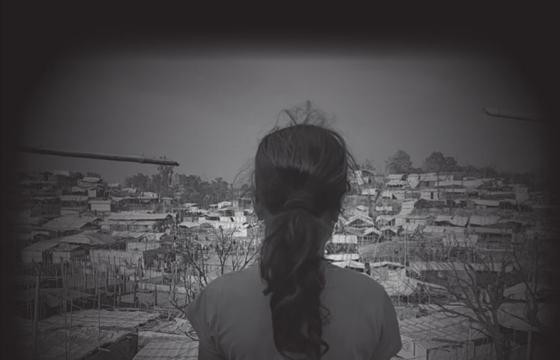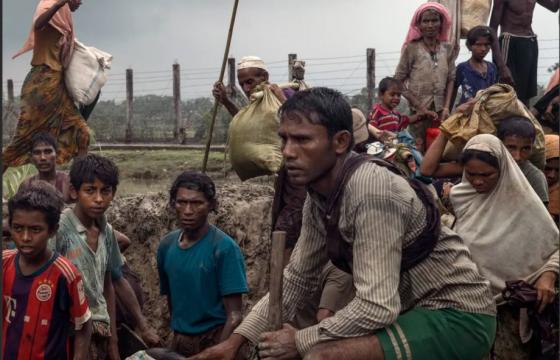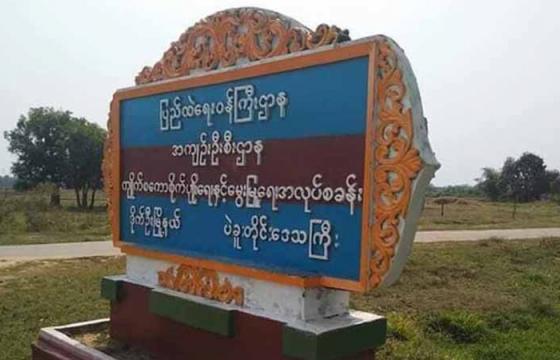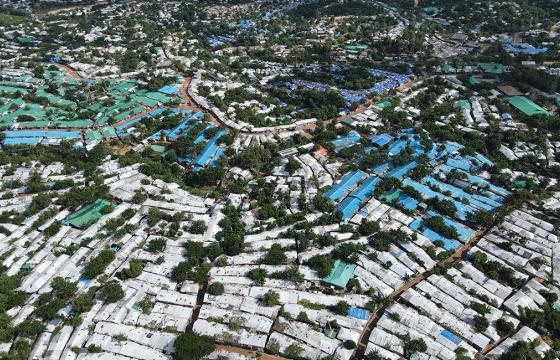All village administrators from Maungdaw south were summoned for a May 20 meeting with Border Guard Police to discuss the current security situation, according to officials allegedly present.
At the meeting with Border Guard Police, village administrators were warned that while residents of the Muslim-majority township may violate curfew during the month of Ramadan, they may not host any overnight guests.
Security forces remain deployed in northern Rakhine State following a thundering counter-insurgency crackdown that officially ran from last October through February. By the UN’s count, nearly 100,000 residents have fled over the border to Bangladesh since the “clearance operations” began.
At the May 20 meeting, the village elders informed the police that residents would need to wake up around midnightthroughout the holy fasting month, and asked for official permission.
Border Guard Police granted permission for Maungdaw residents to break curfew during Ramadan, but cautioned that they must not provide shelter to strangers, and anyone caught doing so will face retaliation, according to those who said they attended the meeting.
“The authorities called the meeting to instruct the villages not to shelter those people in the villages who are working against government,” said a politician who declined to be named.
Rukon, a village elder from Maungdaw, said the meeting was called by BGP number 7.
Mohin, a self-described Rohingya activist, said that village administrators and elders from seven local villages participated in the meeting, which was held at the high school in Aley Than Kyaw Village.
According to participants, the BGP officers asked about who was willing to accept National Verification Cards, who could go into the forest to collect firewood, and who could go the river to fish.
Biala, a village administrative officer, said he asked for and received permission for the residents to wake up early during Ramadan.
Maungdaw township is subject to a 9pm to 5am curfew, and residents many not assemble in groups of five or more in in public places.







